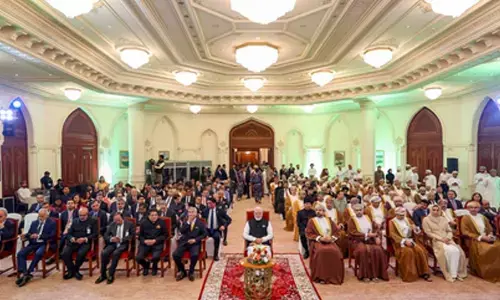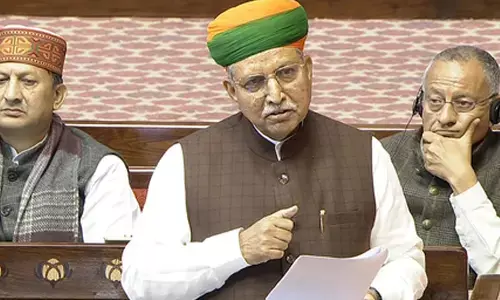Indian, Aussie researchers devise math model to predict Covid vax efficacy

Researchers at the Indian Institute of Science (IISc) here, and Queensland Brain Institute (QBI) in Australia have developed a mathematical model that predicts how antibodies generated by COVID-19 vaccines confer protection against symptomatic infections.
Bengaluru: Researchers at the Indian Institute of Science (IISc) here, and Queensland Brain Institute (QBI) in Australia have developed a mathematical model that predicts how antibodies generated by COVID-19 vaccines confer protection against symptomatic infections. The model can potentially optimise the use of available vaccines and speed up the development of new ones.
"The reason why predicting vaccine efficacies has been hard is that the processes involved are complex and operate at many interconnected levels," said Narendra Dixit, Professor at the Department of Chemical Engineering, IISc, and the senior author of the study that has been published in Nature Computational Science.
"Vaccines trigger a number of different antibodies, each affecting virus growth in the body differently. This in turn affects the dynamics of the infection and the severity of the associated symptoms. Further, different individuals generate different collections of antibodies and in different amounts," he elaborated.
The researchers first analysed over 80 different neutralising antibodies reported to be generated after vaccination against the surface spike protein of SARS-CoV-2, the virus that causes COVID-19. These antibodies are typically present in the blood for months and prevent virus entry by blocking the spike protein. The researchers hypothesised that these 80 antibodies constitute a 'landscape' or 'shape space', and each individual produces a unique 'profile' of antibodies which is a small, random subset of this landscape.
The team then developed a mathematical model to simulate infections in a virtual patient population of about 3,500 people with different antibody profiles, and to predict how many of them would be protected from symptomatic infection following vaccination.
"This diversity of antibody responses was a challenge to comprehend and quantify," adds Pranesh Padmanabhan, Research Fellow at QBI, the first author of the study.
The model was able to predict the level of protection that would be conferred after vaccination based on the antibody 'profile' of the individual, and the predictions were found to closely match efficacies reported in clinical trials for all the major approved vaccines, an IISc statement noted.
The researchers also observed that vaccine efficacy was linked to a readily measurable metric called antibody neutralisation titre. This opens up the possibility of using such models to test future vaccines for their efficacies before elaborate clinical trials are launched, the authors suggest.
Dixit, however, cautions that the study is based on current vaccines which have been designed to work on the original SARS-CoV-2 strain. "Our formalism is yet to be applied to the new variants, including Omicron, where other arms of the immune system and not just antibodies appear to be contributing to vaccine efficacies. Studies are ongoing to address this."




















